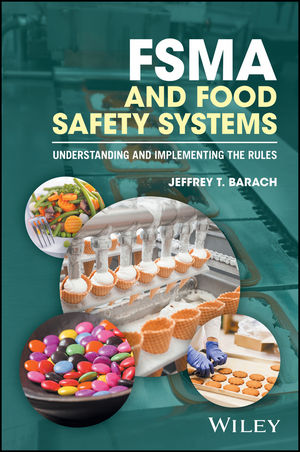Court to FDA: FSMA Deadlines Required

The Food Safety Modernization Act (FSMA) makes sweeping changes to the manner in which the government intends to police food safety. Among other modifications, FSMA imposes science-based standards and controls on companies, directs companies to perform hazard analyses and to create and implement preventative control plans, provides the U.S. Food and Drug Administration (FDA) with greater inspection and enforcement powers and directs importers and the government alike to more closely scrutinize imported foods and foreign suppliers.
Given the import of FSMA to public health and safety, Congress sought to put promulgation of governing regulations on a relative fast-track. To that end, Congress mandated that the FDA promulgate by July 2012 seven new regulations covering extensive topics, including:
• Hazard analyses and risk-based preventive controls
• Produce safety regulations
• Manufacturing, processing, packing and holding of food on farms
• Protection against intentional adulteration of food
• Sanitary transport practices
• Foreign supplier verification
• Selection, neutrality and independence of third-party auditors
Numerous other FSMA-implementing rules are to follow.
As the industry well-knows, FDA failed to meet the statutorily imposed deadlines. That led to protestations from food industry players. Companies within the food manufacture supply chain urged passage of final regulations so that they would have clarity on the rules that will govern their operations. Consumer advocates, in contrast, argued that the delay in final food safety regulations put Americans at greater risk of foodborne illness.
Wary of the ever-increasing delay with no apparent end in sight, last fall two organizations took a dramatic step to change the delay dynamic. Specifically, on August 29, 2012, the Center for Food Safety and the Center for Environmental Health filed a complaint against FDA in the U.S. Federal District Court for the Northern District of California. Therein, the two nonprofits alleged that the FDA had unlawfully delayed issuance of the new rules:
• FDA has missed not one, not two, but seven deadlines, and counting, in failing to implement FSMA’s major food safety regulations. FDA has submitted several of these unlawfully delayed regulations to the Office of Management and Budget (OMB), where they are still awaiting approval. However, FDA has authority to promulgate the regulations without OMB approval.
• [Complaint entitled Center for Food Safety, et al. v. Margaret E. Hamburg, M.D., et al., bearing Case No. 12 CV 4529 (N.D. Cal. 2012), at ¶ 4 (emphasis in original)]. The Centers further noted that “at least nine additional FSMA deadlines will come due in early 2013” and expressed concern that “[b]ased on FDA’s lack of progress to date, [the Centers] have serious concerns regarding the likelihood that these future deadlines will be met.”
To stem the delay, the Centers asked the Federal Court for relief, including a declaration that FDA has violated FSMA by failing to promulgate regulations by the statutory deadlines and entry of judgment directing the FDA to promulgate all FSMA regulations as soon as reasonably practicable, according to Court-imposed deadlines.
In its defense, FDA contended that it has been working diligently on the regulations. Further, FDA argued that, among other things:
• The schemes embodied by the regulations are complex and require time to work out and get right
• The Office of Management and Budget continues to review several rules
• The FDA promulgated in January 2013 two proposed complex and major proposed rules—Current Good Manufacturing Practice and Hazard Analysis and Preventative Controls for Human Food” and “Standards for Growing, Harvesting, Packing and Holding of Food for Human Consumption”—which constitute evidence that the FDA is working diligently
• Given the complexity the issues the regulations encompass, issuance of the required regulations on a rushed basis would not help protect human health and safety.
And, in any event, FDA argued that it broke no law.
On April 22, 2013, the Federal Court sided with the two nonprofits. The Court declared that FDA failed to comply with FSMA’s mandatory rulemaking schedule. Nevertheless, the Court found that “the FDA is correct that the purpose of ensuring food safety will not be served by the issuance of regulations that are insufficiently considered, based on a timetable that is unconnected to the magnitude of the task set by Congress.” (Opinion at p. 10). Noting that any schedule the Court were to set “will necessarily be arbitrary,” the Court ordered the parties “to meet and confer” and to submit to the Court by May 20, 2013, “a joint written statement setting forth proposed deadlines” by which the regulations will be issued.
Now, FSMA implementation likely will move forward on a somewhat more expeditious schedule. It is important for food companies to continue to track FDA’s rulemaking and to review, analyze and comment on proposed FSMA regulations that will govern the food industry. In that way, food companies can help shape the very rules that will control their operations and impact their success. To that end, parties may submit written comments on the proposed rules up to May 16, 2013. Information on the proposed rules and the process by which to submit written comments can be found on the FDA website at www.fda.gov/Food/GuidanceRegulation/FSMA/default.htm.
John T. Shapiro and Jason R. Klinowski are attorneys and members of the Food Industry Team at Freeborn & Peters LLP (Chicago).
Looking for a reprint of this article?
From high-res PDFs to custom plaques, order your copy today!






